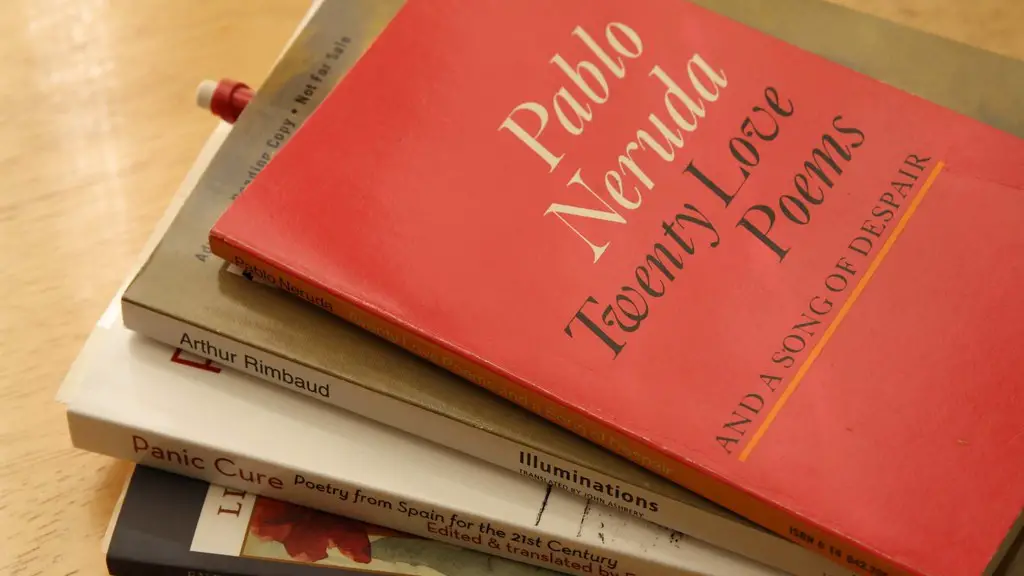Background
Walt Whitman was one of the most influential poets of the 19th century. He is widely regarded as one of the most important figures in American literature, and often referred to as the “Father of Free Verse.” Whitman was born in Huntington, Long Island in 1819 and died in Camden, New Jersey in 1892. He was an outspoken advocate for equality and justice, and was a key figure in the Transcendentalism movement in literature and philosophy. Whitman wrote many poems, novels and essays that were celebrated for their insight, passion and reflection of the life of his time. He is best known for his collection of poems Leaves of Grass, which was first published in 1855 and has since been re-published in multiple editions.
Accomplishments
Walt Whitman had a truly incredible and far-reaching impact on American culture and literature. He had a unique ability to capture the spirit and emotion of the period, and his work has been influential to many poets, authors, and artists. He was the first American poet to write in free verse, and Leaves of Grass has been described as his “masterpiece.” His work helped to bridge the gap between traditional poetic forms and more modern expressions of literature. His writing has also had a huge influence on American civil rights, inspiring activists and reformists to speak up for causes that challenged social injustices. Whitman was also determined to spread his ideas beyond the United States and was the first American poet to be published internationally.
Style and Ideology
The style and ideology of Walt Whitman was highly reflective of the period in which he lived. He was known for his use of vivid imagery and strong metaphors, and for creating a language that has since become iconic in American literature. Whitman’s writing was often patriotic, and celebrated the people, places, and events unfolding around him. His poem “I Hear America Singing” is a perfect example of this. He also wrote passionately about social issues, particularly those of justice and equality. Whitman’s most famous poem “O Captain! My Captain” was written as a tribute to Abraham Lincoln, who had just been assassinated. The poem is considered a powerful testament to the tragedy of the Civil War.
Legacy
The legacy of Walt Whitman is vast, and he has left a lasting impact on American literature. He is often considered to be one of the most influential American poets, and his work has been cited by writers, artists, and activists alike. His iconic poem “Leaves of Grass” has been translated into numerous languages and has been highly acclaimed by many. The Whitman Archive, an online project devoted to preserving and archiving Whitman’s work, is also testament to his continuing influence on literature.
Criticism
Though Whitman was a celebrated writer, he was not without his critics. Many found his writing controversial, particularly those from more conservative backgrounds. His open celebration of human sexuality in some of his poems was particularly controversial, and others criticized him for his championing of certain causes and ideas. Despite this, Whitman remained firm in his convictions and never wavered in his commitment to writing what he felt was true and honest.
Engagement with the Readers
Since Whitman’s death in 1892, his work has continued to resonate with readers. Many of his poems have become iconic and have been widely analyzed for their insight into the human condition. His work has been studied by scholars and activists, and his influence can still be seen in modern American literature. Whitman inspired readers to question the status quo and to fight for equality and justice, and these messages are still relevant today.
Popularization of His Work
Since his death, Whitman’s work has become increasingly popular, with numerous collections of his work being published by various publishing houses. His work continues to be anthologized, the Whitman Archive provides access to thousands of his poems, essays, and manuscripts, and there are numerous exhibitions and conferences dedicated to his work. Studying Whitman’s poetry and prose is a great way to gain insight into the 19th century.
Influence on Music and Painting
Walt Whitman had a huge influence on other forms of art, from painting to music. His poetry has inspired many pieces of contemporary art, and his work often serves as a source of inspiration for the songwriting of popular music. Painter Thomas Eakins was directly influenced by Whitman’s work, and was an admirer of his writing. Musician Bob Dylan has also been highly influenced by his work, even writing a song in tribute to him.
Impact on Society
Finally, it is important to recognize the impact Whitman’s work had on society. He was a passionate advocate for equality and justice, and his writing inspired many activists and reformers to speak up for causes which challenged social ills. To this day, people are still inspired by Whitman’s writing, and to use their voices to effect social change.
Social Commentary
Whitman was an astute observer of the period in which he lived and was a masterful storyteller. His writing explored a wide range of topics, from the nature of life, to the sorrow of death, and he wrote openly and honestly about the challenges facing society. His writing was often highly critical of the status quo and challenged the values and conventions of his time.
Active Political Engagement
Whitman was not content to just observe the events unfolding around him, he was also actively engaged in politics. He was a committed abolitionist and was strongly associated with the Republican party. His circle of friends included prominent figures such as William Lloyd Garrison, who was a fierce advocate for the rights of African-Americans.
Innovative Poetic Techniques
Walt Whitman was a revolutionary artist and was renowned for pushing the boundaries with his innovative poetic techniques. He embraced the spirit of experimentation and often fused numerous poetic techniques together to create unique and vivid pieces of literature. He is often credited with developing free verse, which was seen as a radical departure from the traditional poetic techniques of the period.
Tributes to Whitman
The legacy of Walt Whitman has been firmly established, and his work continues to resonate with readers. Numerous tributes have been dedicated to him, such as plaques, monuments, and even a street being named in his honor. Recently, parks and literary journals have held events in celebration of his birthday, a testament to the impact he has had and continues to have on American literature.



